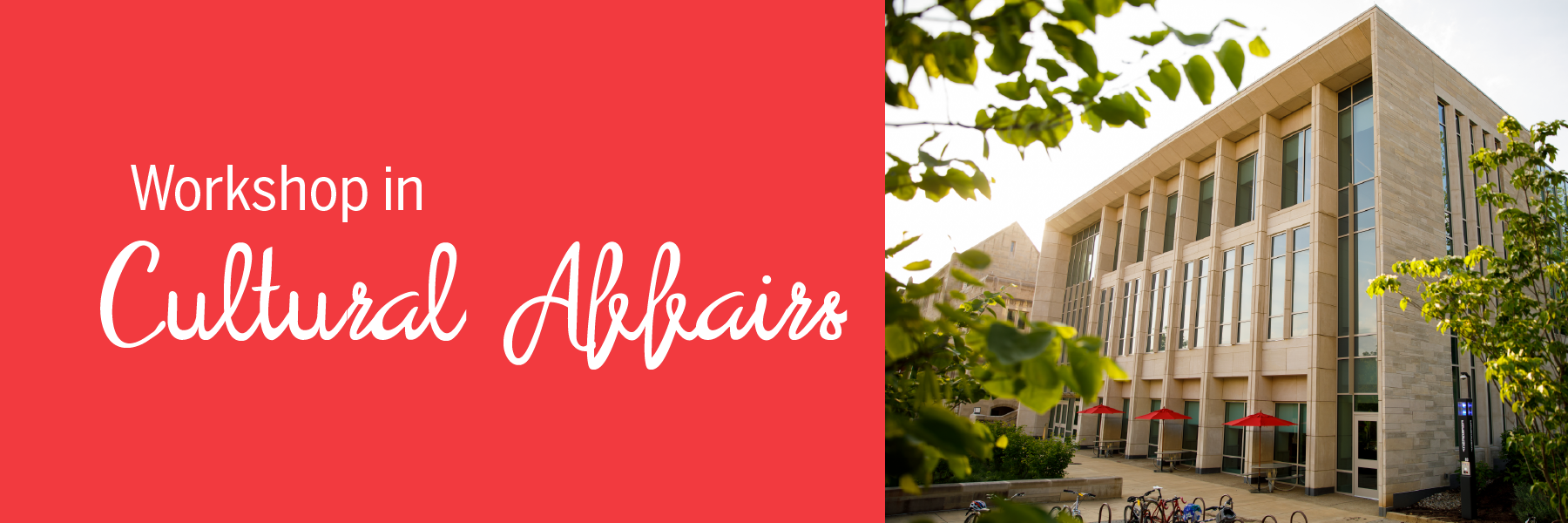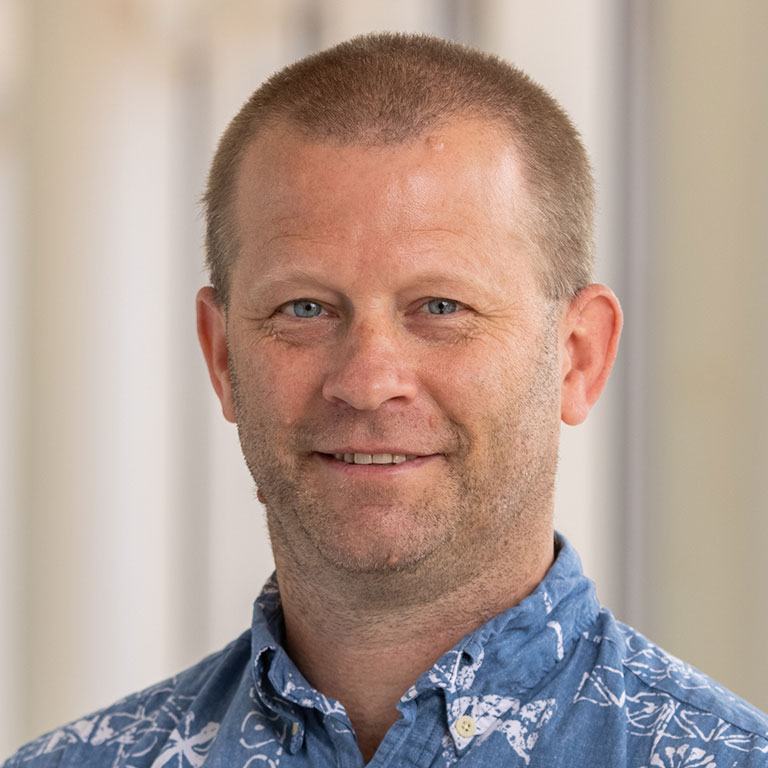The Workshop in Cultural Affairs series advances the Center for Cultural Affairs’ priorities around training, research, and field-building. These biweekly workshops will highlight researchers at the O'Neill School, the greater Indiana University community, and beyond. The workshop connects cultural affairs experts together in a forum for scholarly discussion, debate, and exploration of the important issues being faced in the field of cultural affairs.
Workshop in Cultural Affairs
Eleonora Redaelli, University of Oregon
February 11, 12pm ET/6pm CET
Topic: "Invisible Cultural Policy in America"
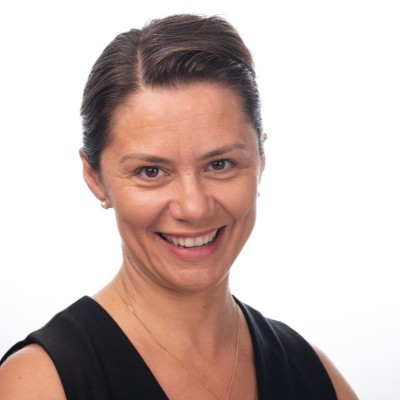
Eleonora Redaelli is a Professor at the University of Oregon specialized in American cultural policy and currently served as a Dean of Faculty at IES Abroad in Rome. After working for public and private institutions in the cultural sector in Italy, she earned her Ph.D. from The Ohio State University. She coordinated and taught in the Arts Management program at the University of Wisconsin-Stevens Point. She has been visiting professor at American University (Rome), Shandong University (Jinan, China), University of International Business and Economics (Beijing), and visiting scholar at Tshwane University of Technology (Pretoria, South Africa), University of Ottawa (Canada), Politecnico di Milano (Italy), Aarhus University (Denmark). Her work appears in several leading journals. With Palgrave, she has published Arts Management and Cultural Policy Research (2016), co-authored with Jonathan Paquette, Connecting Arts and Place. Cultural Policy and American Cities (2019), the edited volume Visiting the Art Museum: A Journey Toward Participation (2023). With Edward Elgar she recently published Invisible Cultural Policy in America: How Public Administration Shapes Culture (2025).
Jennifer Wiggins-Lyndall, Kent State University
February 25, 12pm ET/6pm CET
Topic: "Legitimate Incongruity: Strategic Positioning Within Hybrid Categories"
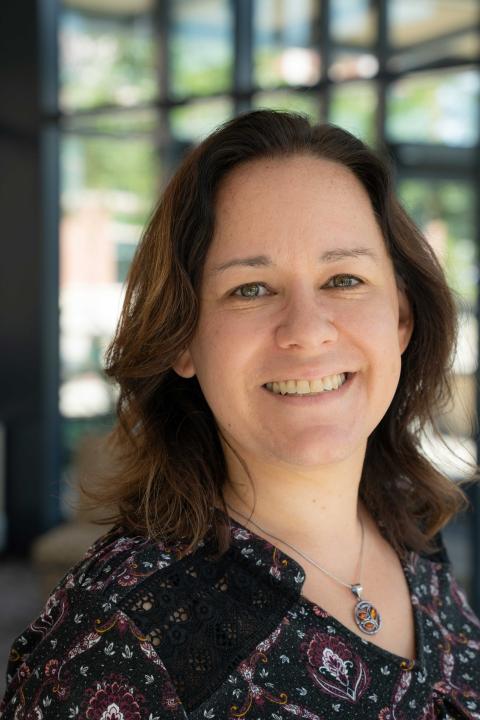
Jennifer Wiggins is Professor of Marketing and Entrepreneurship and Director of the PhD Program in Business Administration at Kent State University. She holds an MA in Arts Administration and a PhD in Marketing from the University of Wisconsin-Madison. Jennifer’s research focuses on consumers’ willingness to donate to nonprofit organizations, willingness to pay for arts experiences, and willingness to contribute to new arts and social ventures. She has published her work in journals including the Journal of Marketing, Journal of Consumer Psychology, Journal of Business Venturing, Journal of Interactive Marketing, Strategic Organization, Journal of Business Research, Psychology & Marketing, Nonprofit and Voluntary Sector Quarterly, and International Journal of Arts Management. She has been an invited contributor to The Routledge Companion to Arts Marketing and The Oxford Handbook of Arts and Cultural Management and is a co-author of the forthcoming handbook Doing (and Using) Research in Arts and Cultural Management. She is Co-Editor in Chief of the International Journal of Arts Management and a member of the Scientific Committee for the International Association for Arts and Cultural Management.
Gwendolyn Rugg, The Bridge at NORC & Jessica Feldman, Mellon Foundation
March 11, 12pm ET/6pm CET
Topic: "The Lives and Livelihoods of U.S. Artists: Key Insights from a Representative Survey"
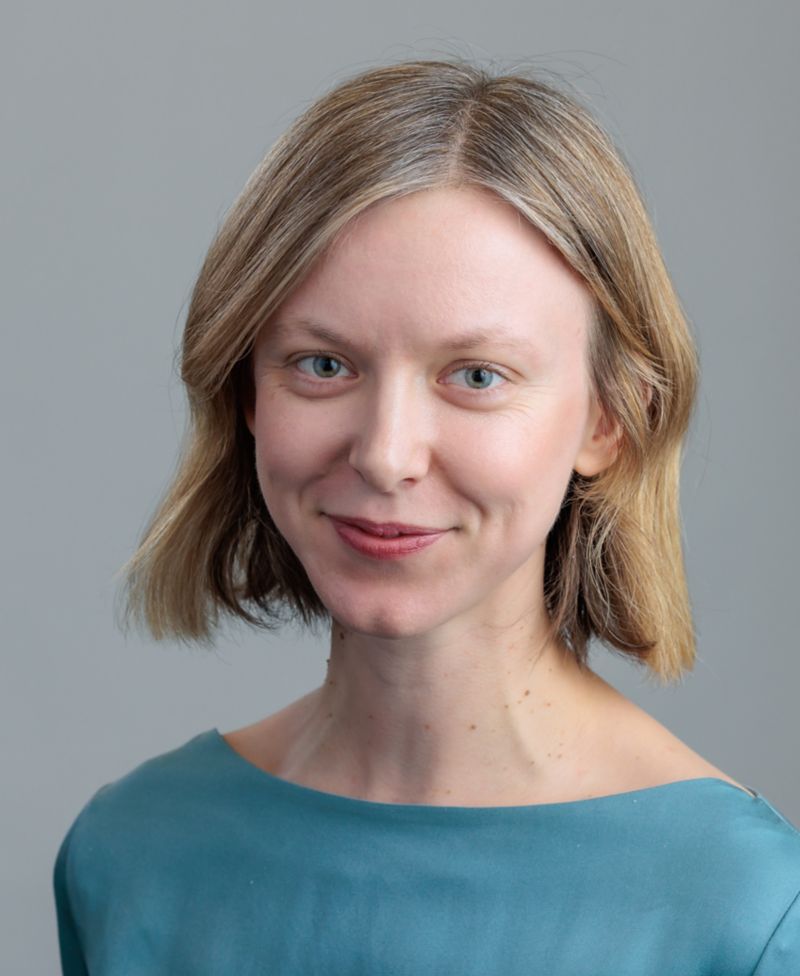
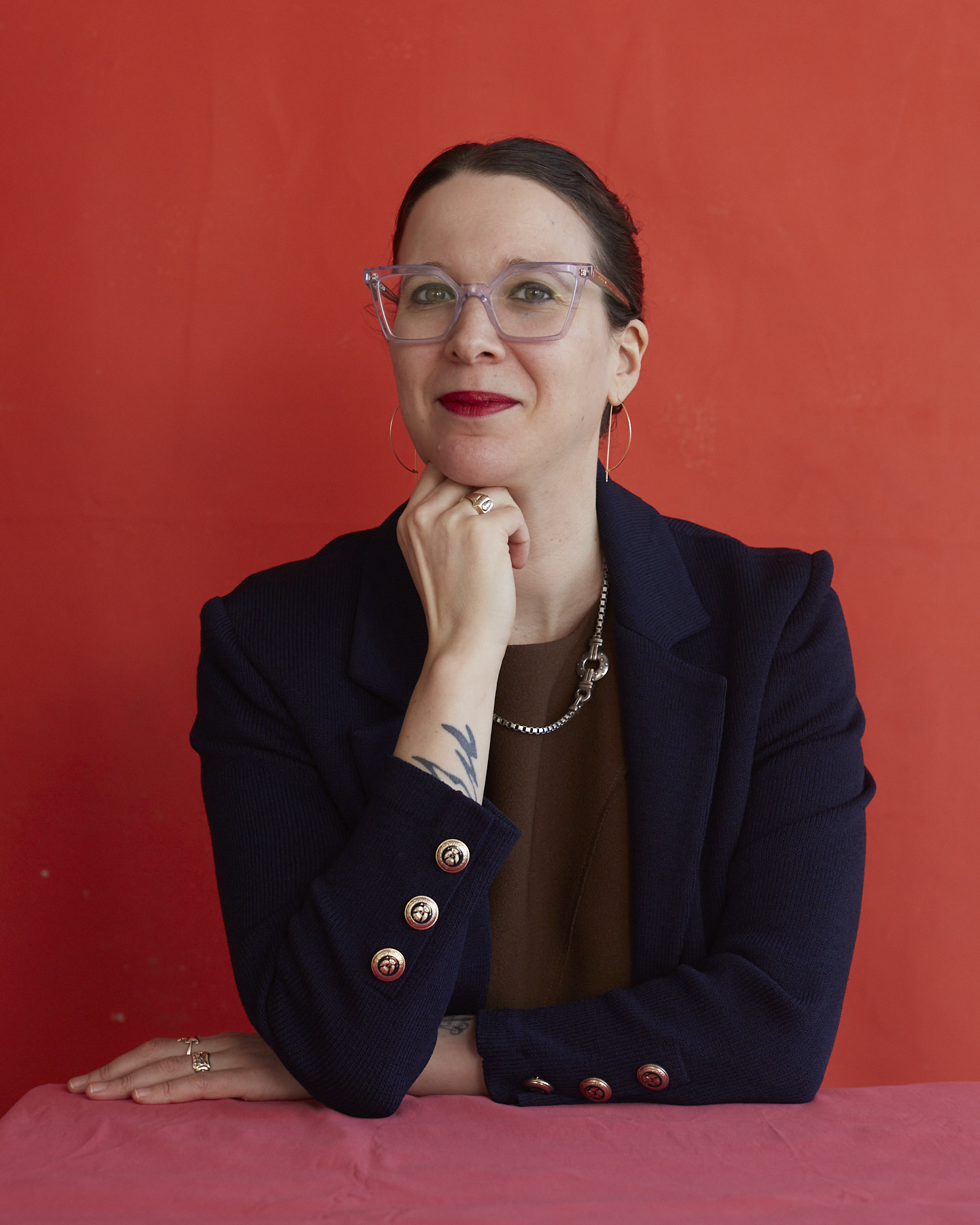
Gwendolyn Rugg is a Senior Research Scientist in The Bridge at NORC, where she leads the organization's research and program evaluation portfolio focused on arts and culture. In this role, she partners with organizations in the not-for-profit, government, and philanthropic sectors, collaborating to connect arts and culture research with other key areas, such as health, economic opportunity, and community development. As a Project Director, she has led major studies on artistic and cultural engagement for prominent foundations like the Mellon Foundation, Wallace Foundation, and the MacArthur Foundation, overseeing all aspects from proposal development and data collection to reporting findings to diverse stakeholders. Her background includes extensive work prior to NORC at the Cultural Policy Center at the University of Chicago, as well as roles involving curatorial research at the Art Institute of Chicago and public programming at the Newberry Library.
Jessica Feldman is a senior research associate at the Mellon Foundation. In this role, she supports the design and commissioning of research to inform the strategic objectives of the Arts and Culture grantmaking program. Prior to assuming this position, Jessica served as a senior research analyst in Mellon’s Office of Institutional Research. She previously worked as a research and planning analyst at New Yorkers for Parks. She holds a BA from Smith College, and an MPP in public policy studies and PhD in sociology from the University of Chicago.
Julia Dessauer, Indiana University
March 25, 12pm ET/6pm CET
Topic: "Stepwise and Transformative Promotions: How Early Careers Are Shaped in Hollywood"
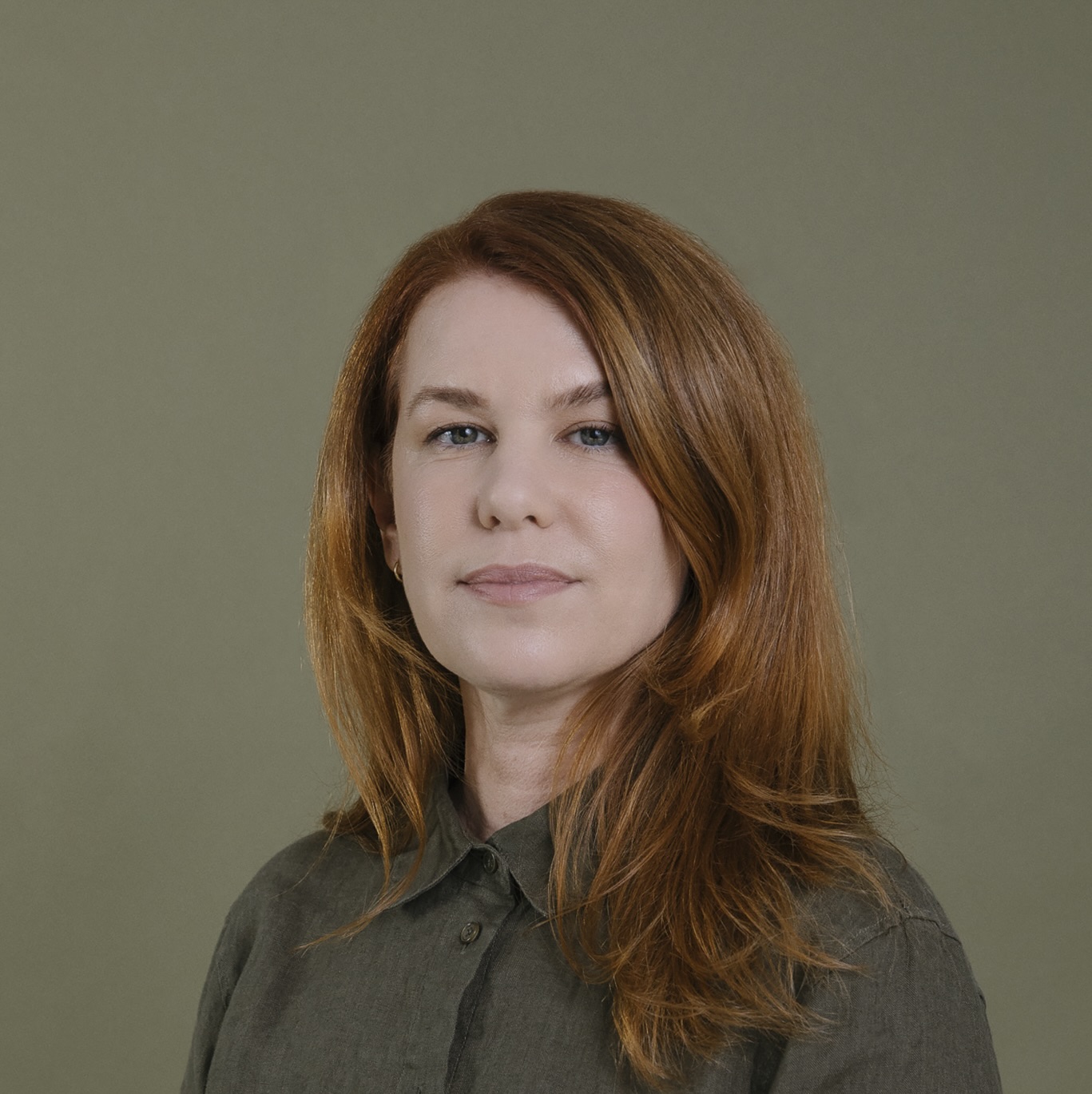
Julia Dessauer’s research broadly focuses on power, labor, and inequality in culture industries. Her dissertation, “Power in Hollywood: Work, Agency, and Authorship in the Era of #MeToo,” was awarded a 2024 NSF/ASA Doctoral Dissertation Research Improvement Grant. Her article on Hollywood assistants appears in Qualitative Sociology and received a 2024 Honorable Mention from the Organizations, Occupations and Work Section of the American Sociological Association. Julia holds a Ph.D. in sociology from the University of Virginia.
Doug Noonan, Indiana University
April 8, 12pm ET/6pm CET
Topic: "Insights About Guaranteed Income for Artists: What We've Learned So Far From CRNY"
Jess Bone, University of College London
April 22, 12pm ET/6pm CET
Topic: "Can Social Prescribing Work at the National Level? Evidence on Adoption, Effectiveness, and Inequalities from the UK"
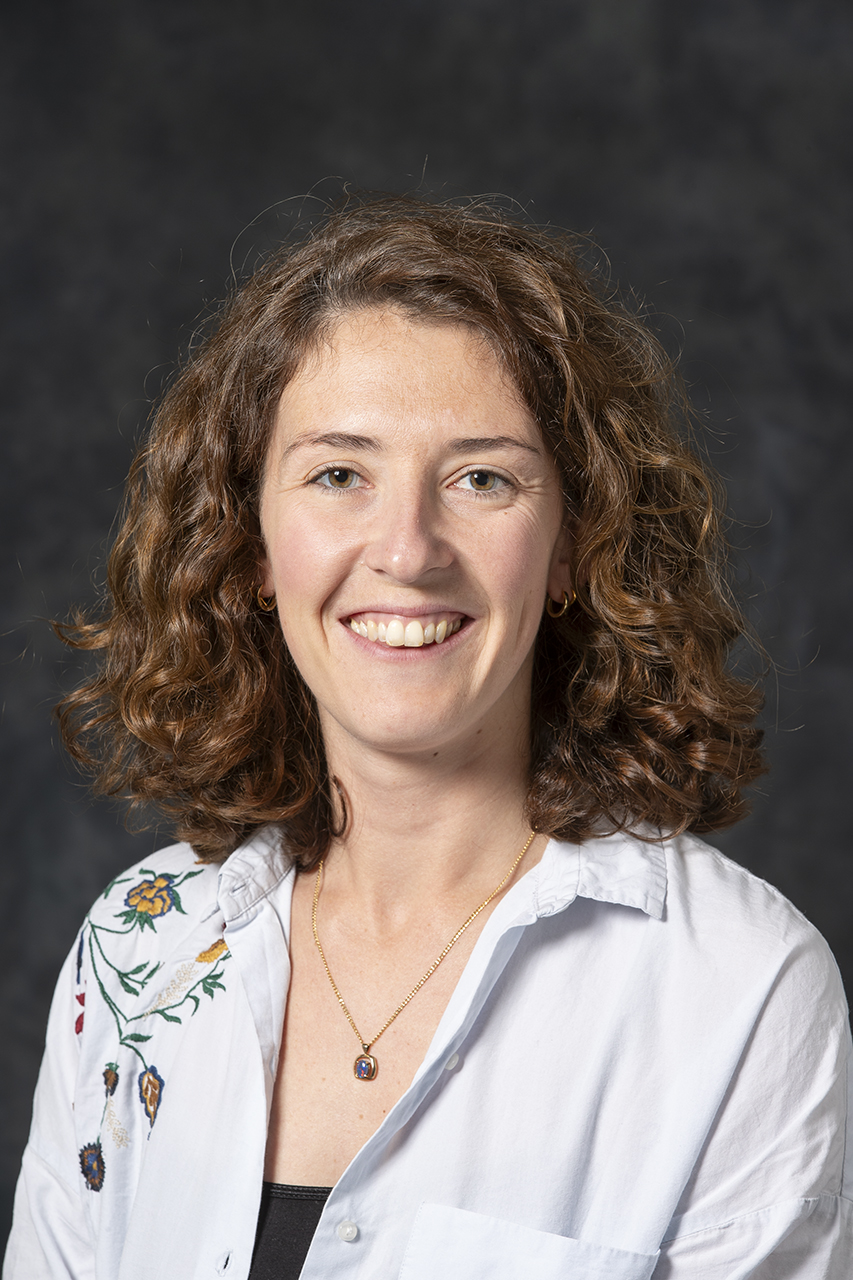
Jess Bone is a Senior Research Fellow and NIHR Advanced Fellow in the Social Biobehavioural Research Group at University College London (https://sbbresearch.org). Her research focuses on the social determinants of health, specifically the role of social assets (relationships, community engagement, leisure activities, arts) in mental health. She is particularly interested in exploring the inequalities in these factors, and interventions to address these inequalities (e.g. social prescribing). As an epidemiologist, she works with population-level data, from longitudinal cohort studies, large surveys, and administrative data. She has expertise in a range of advanced statistical approaches, from novel methods for causal inference, to longitudinal methods, time use analyses, and multicohort analyses. Jess is currently leading a five-year programme of work that aims to establish whether community activities can be used to prevent anxiety and depression among young people. Since 2020, Jess has led the EpiArts project, which aims to investigate the association between arts and cultural engagement and population health in the US and internationally. She is also involved in the development and evaluation of social prescribing pathways for young people in various settings (e.g. schools, mental health services).
Workshop Alums
Nicole Cohen, University of Toronto
Greig de Peuter, Wilfrid Laurie
Brent Lutes, U.S. Copyright Office
Felix Koenig, Carnegie Mellon
Patricia Banks, Mount Holyoke College


